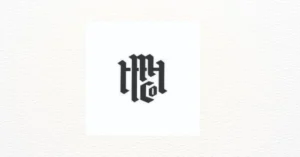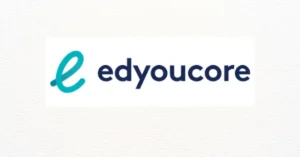In the vast, fast-moving landscape of the modern web, where influencer trends die within hours and content cycles implode upon themselves daily, there’s something refreshing about the stillness—and persistence—of www.myinternetaccess.net/blog.
For the last several years, the blog housed on this privacy-centric site has built a slow-burning but committed readership, drawing technologists, digital rights activists, cybersecurity researchers, and everyday internet users looking for one thing: clarity in an increasingly murky online world.
Modeled on the longform, documentary style of The New York Times, this piece takes a deep dive into what www.myinternetaccess.net/blog really is, why it matters in 2025, and how its editorial vision intersects with everything from global privacy debates to the digital habits of teenagers in rural towns.
Origins: Not Just Another VPN Blog
Launched in 2018 as a supporting content hub for a virtual private network (VPN) provider, the blog was originally filled with technical explainers and cybersecurity tips. But something shifted by 2020: the articles got longer, deeper, and more investigative.
Instead of just comparing browser encryption levels, the writers began tracing how telecom lobbying shaped U.S. internet regulations. Rather than publishing SEO bait on “Best Firewalls,” the blog ran a three-part series on data brokers scraping municipal government sites.
In other words, www.myinternetaccess.net/blog transcended its parent service to become a destination in its own right.
Core Editorial Pillars
Today, in 2025, the blog organizes its work under four primary themes:
1. Privacy Literacy
Articles demystify the infrastructure of tracking and surveillance. Topics range from:
- How browser fingerprinting works
- Why metadata matters more than passwords
- What truly happens to your data after a VPN connection ends
2. Access and Inclusion
Not everyone has high-speed internet—or even neutral access to it. The blog profiles grassroots efforts to:
- Build community mesh networks
- Teach digital rights in underserved schools
- Document censorship efforts in rural and indigenous communities
3. Policy Watch
In a world of fast-shifting legislation, the blog tracks:
- Global privacy law updates (GDPR, CCPA, PDPB)
- Telecom deregulation trends
- AI surveillance expansion in the public sector
4. Open Web Culture
Covering tools, trends, and philosophies that keep the web interoperable and user-centered:
- Fediverse usage stats
- Web3 skepticism with historical perspective
- Minimalist software reviews

The Voice Behind the Posts
Unlike major newsrooms, the blog’s writing team is small—just four core contributors. But their backgrounds include:
- An ex-cybercrime analyst from Brussels
- A linguist-turned-UX researcher in Mexico City
- A community mesh network coordinator in Nairobi
- A privacy lawyer formerly with the EFF
They write under pseudonyms—not for anonymity per se, but to center ideas over individuals.
The tone is analytical, conversational, often poetic. Think: Naomi Klein meets Ars Technica.
A Sample Journey Through the Blog
Start with the piece titled “The Quiet Web: Rediscovering Browsing Without Tracking.”
This 2,800-word reflection weaves technical steps (running DNS over HTTPS, deploying Pi-hole) with philosophical musings on attention, autonomy, and digital hygiene. It ends not with product endorsements, but questions: What are we really trying to protect? What are we willing to give up?
Another standout is “Bandwidth Colonialism,” a searing indictment of how undersea cable routes mirror 19th-century trade empires—and how internet speed remains a geopolitical lever in 2025.
Audience: Not Just for the Tech Elite
While many readers are technically inclined, the blog’s accessibility makes it stand out. Each post includes:
- A summary block at the top
- Definitions for technical terms
- Links to open-source tools and further reading
There’s also a quarterly newsletter, sent as plain text with no tracking pixels—often featuring reader replies and annotated feedback.
Relationship to the Parent Site
Yes, www.myinternetaccess.net is primarily a VPN provider. But the editorial firewall between service and blog content is clearly maintained.
When VPN industry scandals broke in 2023 involving hidden data logging, the blog published an investigation that included hard questions directed at its own team. That piece, titled “Trust and Tunnels,” was later syndicated by open-source publications.
This commitment to editorial independence has earned the blog trust in a space flooded with thin affiliate content.
Tools, Not Just Talk
Unlike platforms that end with a “Buy Now” button, blog posts often link to:
- GitHub repos for DIY tools
- Encrypted community forums
- Events for digital rights education
One article on “Safe Browsing for Kids” includes a printable zine designed for parents to teach privacy principles through storytelling and crafts.
Another on “Navigating the Surveillance Supply Chain” provides spreadsheets of camera vendors used in global smart city projects.
Challenges and Criticism
The blog isn’t without detractors. Critics point to:
- Occasional editorial bias against emerging commercial tech
- Posts that idealize decentralization without addressing its usability challenges
- Limited coverage of Asian internet cultures beyond censorship issues
The team acknowledges these critiques—and often includes dissenting reader comments in footnotes and follow-ups.

The 2025 Context: Why It Matters Now
In an era where AI-driven personalization dominates the digital space and platform monopolies shape access, the kind of work done by www.myinternetaccess.net/blog is more than informative—it’s necessary.
It acts as:
- A decoder for non-experts
- A watchdog on government overreach
- A cultural record of how we choose to connect
In regions where VPNs are banned or throttled, the blog’s mirror pages and RSS distribution provide lifelines for activists and researchers.
Looking Ahead
The team has hinted at future projects:
- An oral history series on early web activists
- A searchable archive of surveillance legislation by country
- Collaborations with visual artists on interactive storytelling
The goal is to make digital literacy tactile, narrative, and global.
Final Thoughts: www.myinternetaccess.net
www.myinternetaccess.net/blog is more than a journal of encryption techniques or an accessory to a product. It is one of the few remaining corners of the commercial internet that prioritizes reflection over reach, education over escalation.
It serves as both a manual and a meditation. And in a digital era awash in distraction, that might be its most radical offering.
For more information, click here.









